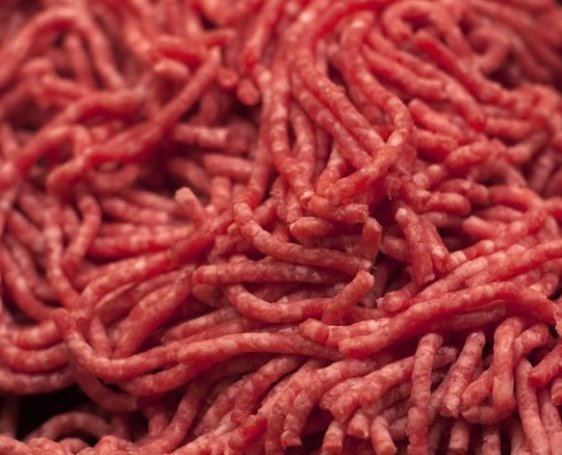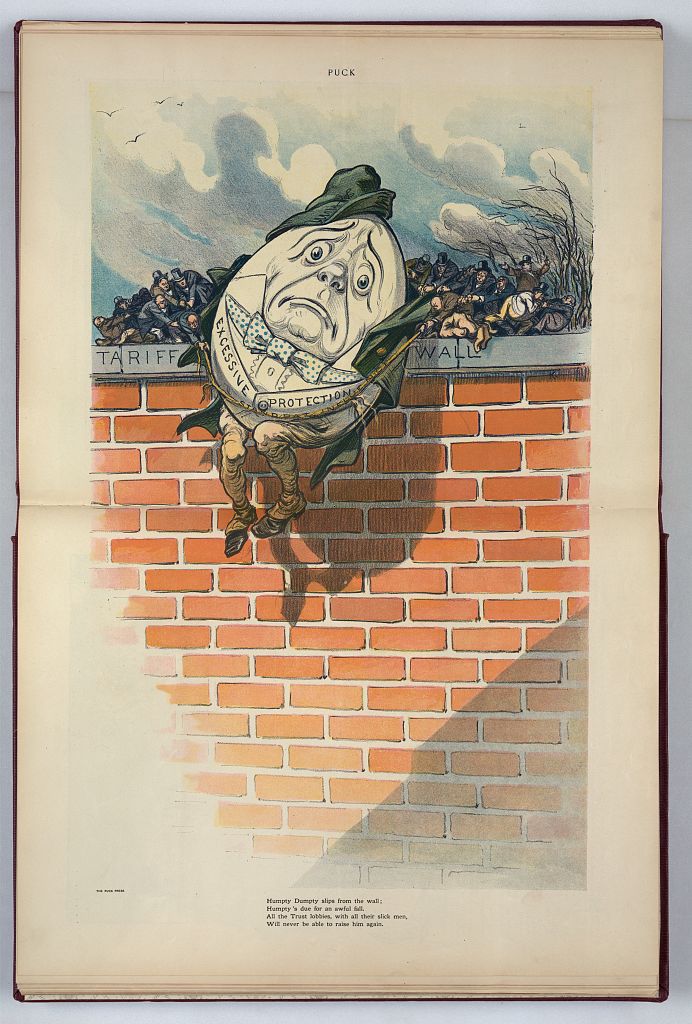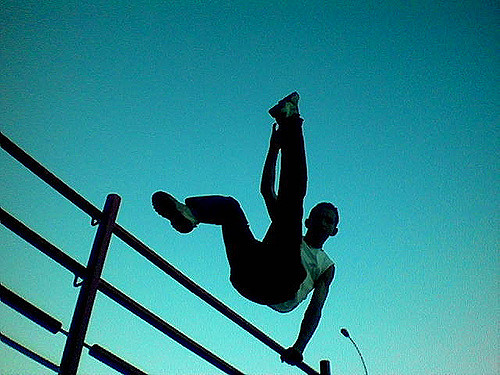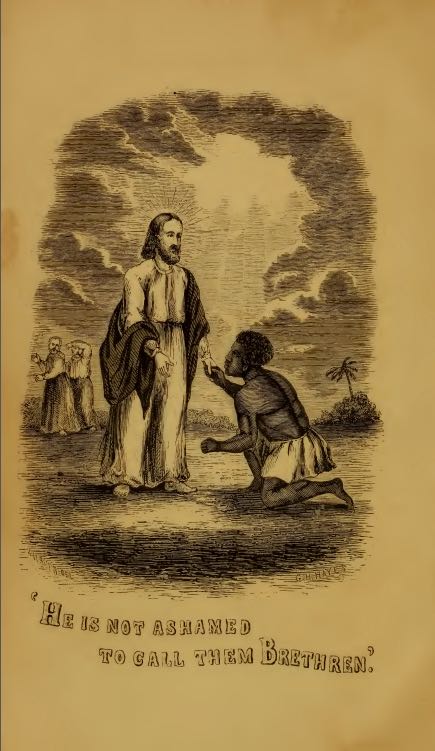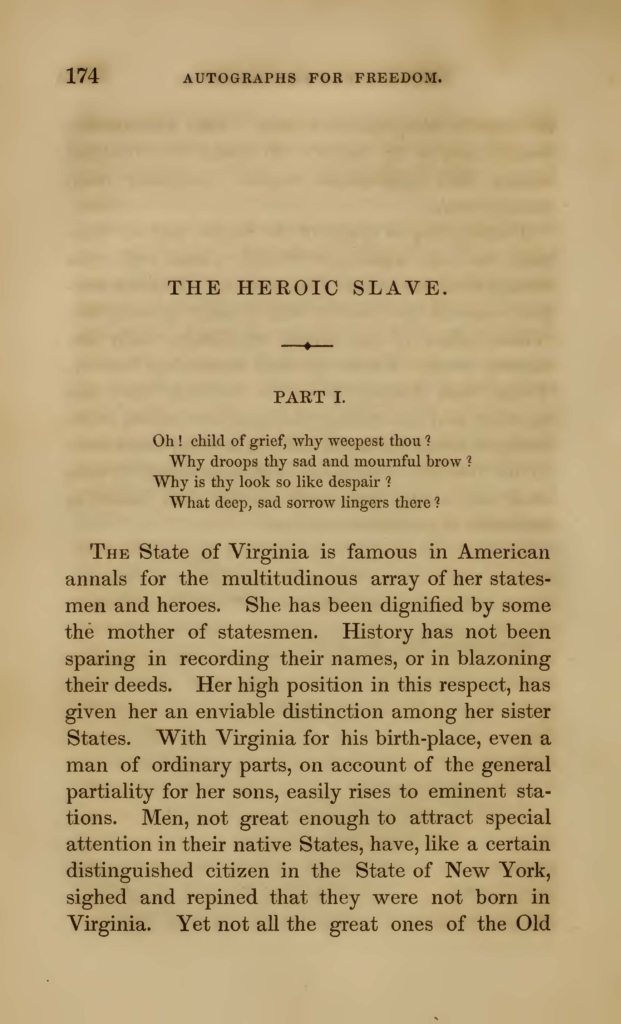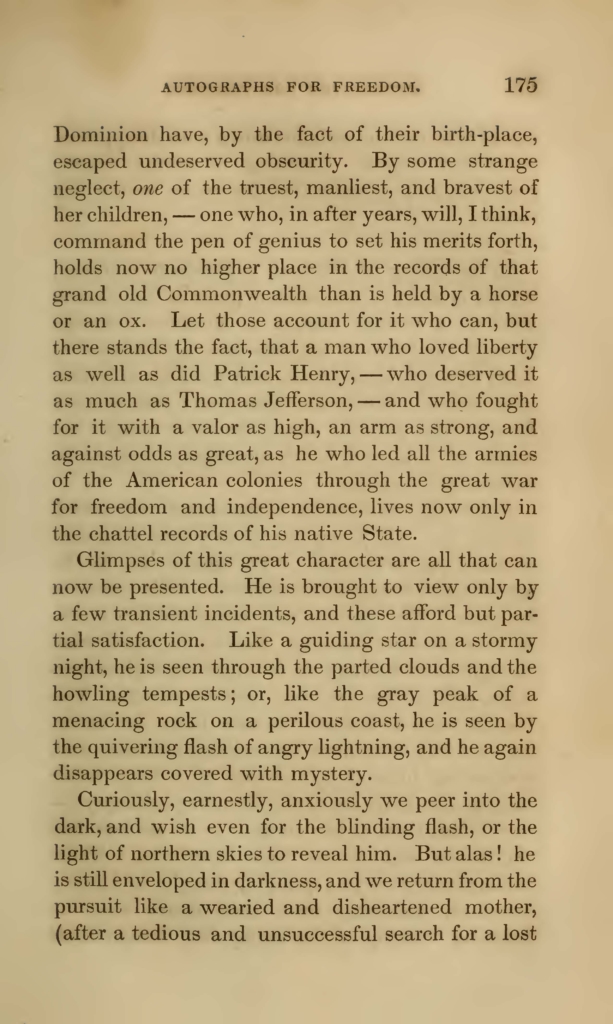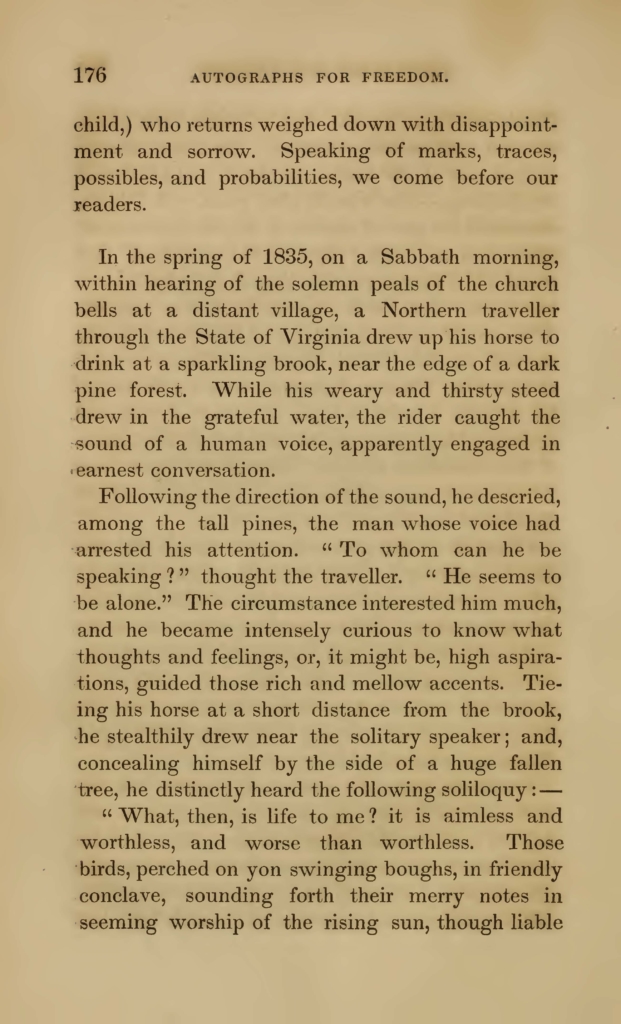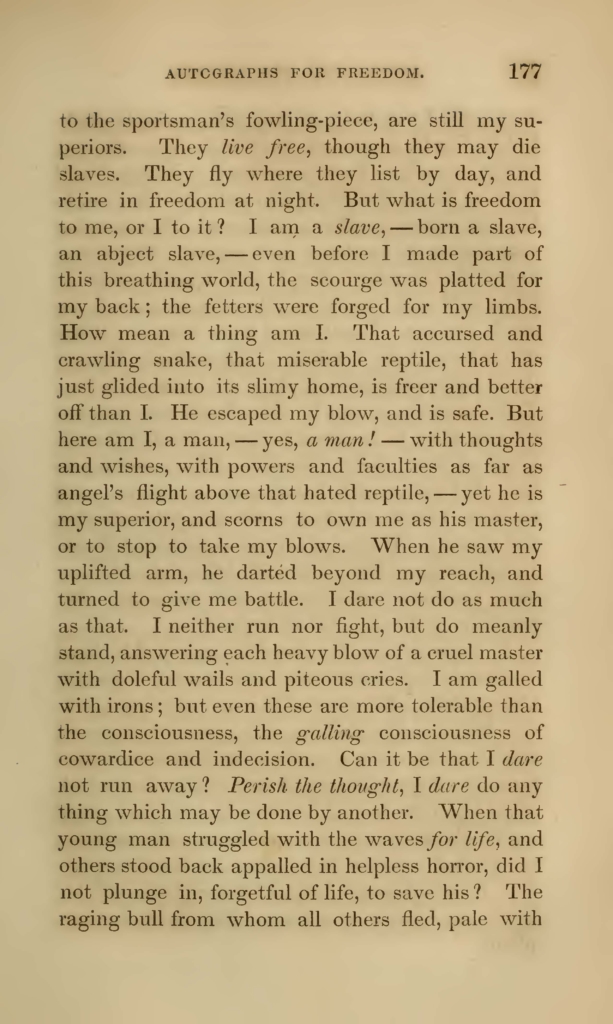Proofreader
By Kris Faatz
On the day the world finally changed, Cinny had her feet up on the end of the bunk in her prison cell and her nose in a lame women’s magazine. Today marked her seventeenth day at Washington D.C.’s Correctional Facility for Troubled Women. Seventeen days out of the three thousand, six hundred and fifty-two she had been sentenced for her career as a professional thief. Already she knew she would rather read toilet paper than these dumb magazines, which were printed by order of the Devoted Patriot—on actual paper, no less—and were the only things CFTW inmates were allowed to read. Supposedly they rehabbed you into a real American woman.
Cinny was staring at the dumbest of the articles when one of the stoolies came to the door. The cell doors stood open all day, prison rules. Over the top of the magazine, Cinny saw the stoolie stop and reach out to knock anyway, and then pull her hand back like the door was one of the Devoted Patriot’s army of undercover cops, ready to do a Screengrab on her. Like any Screengrab could matter when you were already inside this pisshole.
“Cinnabar Jackson?”
Cinny went on staring at the article, about how to program your i-Serve personal assistant to style your permed hair with just the right bounce. As if anybody in here was allowed an i-Serve, and as if Cinny had ever had a perm. Her blonde hair hung perfectly straight. She’d chopped it off boy-length five years ago, the same time she’d started thieving.
“Cinnabar Jackson!”
Cinny let the magazine flop onto her chest, but didn’t sit up. “Yeah?”
She didn’t recognize this stoolie. The guards changed them out all the time. This stoolie was tall, way taller than Cinny’s five-zilch, and strong-built, with dark skin and dark hair tied up in a knot. The dark ones outnumbered the pale ones in here, dozens to one. Most of them liked to throw their weight around when they could. Christ knew they couldn’t do it outside.
“Warden wants to talk to you,” the stoolie said.
Cinny still didn’t move. “Hell did I do?”
“Hell should I know? She just said bring you in. So get up.”
No doubt she figured that tiny, lily-white Cinny wouldn’t want to mess with someone almost twice her size. Cinny was built like a dancer, and people forgot how strong dancers had to be. But what the hell. Not like Cinny was doing anything else.
The stoolie led her through the CFTW Ward 7 maze. Built ten years ago, at the start of the Devoted Patriot’s first term, the prison was designed to be riot-proof. No hall led in a straight line: They were all zigzags and curves, with random corridors branching off and cornering back around in strange ways. It would take a long time to memorize the map.
Cinny knew she was lucky not to have see the inside of a CFTW a long time ago. Crime wasn’t supposed to work anymore, now that Screengrabs were standard. Screengrabs were the DNA samples the undercover cops could take from anybody, any time. Someone brushing against you on the street could be a cop, and he would run your Screengrab against his database implants and know everything about you in an instant. The tech should have meant that criminals had nowhere to hide. Of course, Cinny thought, the prisons stayed full anyway, especially the CFTWs.
The stoolie, who had a map implant, led Cinny down yet another corridor. At the end of it, there was an open door, a narrow gray room, and a woman who could have been anybody’s grandmother except for the stun pistol in her belt.
“The prisoner, ma’am,” the stoolie said. She pushed Cinny inside and swung the heavy metal door shut behind her.
Granny Warden pointed to a metal chair, the only piece of furniture in the room. “Sit.”
Cinny obeyed. You didn’t mess with wardens. She had been hit once with a stun pistol, only once.
“Cinnabar,” the warden said. “The color of passion. Also poison.”
Cinny couldn’t hide her surprise. Nobody else in the legal system had looked twice at her name. “A gifted thief,” Granny went on, standing in front of Cinny and sizing her up as if Cinny was an i-Serve the warden was thinking of buying. “Pickpocketing. Cat burglary. Felony misdemeanor sheet considerably longer than the average arm. An amazing career, all told.”
Cinny didn’t have to answer. It was all true. She had lifted wallets out of pockets and purses, picked locks and skimmed through houses, making no more noise than a breeze. Nothing had felt better than the rush of the score, but in the end, she couldn’t do it forever. Nothing lasted forever, except the Devoted Patriot.
Granny sized her up again. “It seems to me, you’re wasting your talents in here.”
If they wanted to make her a stoolie, they could guess again. Cinny kept her face blank. Then Granny said, “You’re such a talented thief, you could almost be a cop.”
Cinny’s mouth opened on its own. “What?”
The warden smiled for the first time. Cinny revised her first idea of the woman. No grandmother could smile like that: wickedness crystallized.
The warden said, “You know about Screengrabs, but I’ll bet you’ve never heard of Proofreading.”
Cinny shook her head. “I’ll explain,” the warden said. “And I might have a job for you.”
• • •
A month later, Cinny left the city she had lived in all her life. She drove the car she’d been given, a 2027 Ford Ultra, north to Baltimore and then caught the big east-west route toward Cumberland, out in the country. Traffic unclogged west of Frederick until she was humming alone down a slash of pavement with nothing but green on either side, as far as the eye could see.
Countryside made Cinny nervous. She liked crowds and big solid buildings, shadows that swallowed her up, tangles of people that left pursuers confused. Out here, she had nowhere to take cover. She also had not one but two sets of new implants, which Rose Taylor—Granny Warden’s real name—had promised Cinny she wouldn’t feel, but that wasn’t true. Cinny thought her brain was jammed up with all the new data stuffed into it. And then, last but certainly not least, there was what Cinny was supposed to do now. What, in fact, she was now.
She’d gotten basic police training in two weeks. As Officer Taylor said, Cinny already had the most important skills a cop needed. She could be fast and sneaky, use her brain and lie through her teeth—as well as the cops or better. After all, it had taken them five years to catch her. Screengrabs were just like pickpocketing: you snagged a piece of hair or brushed your hand against someone’s skin. And Cinny had exactly the right looks. Pale skin and blonde hair got you anywhere you wanted these days. They would especially get her into her final destination, at the end of this road.
The other two weeks of training she’d had were the elite stuff. The stuff nobody knew about yet, because it had come straight out of the CFTW.
Officer Taylor had explained it all on Cinny’s last day as a CFTW inmate. “We’ve waited a long time,” the warden had said. “It’s taken years of careful setup.” Cinny couldn’t believe her ears when she heard what had been going on in the prison, right under the Devoted Patriot’s sizeable nose. “Nobody thought to watch us,” the warden said. “Women aren’t smart enough to cause real trouble, you know.” She flashed her smile. “Everything’s ready, but we needed the right agent. You, Cinnabar, are it.”
So Cinny had learned about Proofreading. The skill worked a lot like a Screengrab, except backwards, and with a couple of other differences. One of the biggest was that once done, it couldn’t be undone. When you used the skill on someone, they would feel its effects forever. Proofreading, Officer Taylor said, would throw some serious sand into the Devoted Patriot’s gears. After ten long years, the CFTW women believed they had found a way to bring the Patriot’s great machine down.
By the time the afternoon sun had turned orange, Cinny had made it to the end of the road. The Devoted Patriot’s country manor.
The Patriot was eighty years old now. He refused to live in Washington anymore, but Cinny knew he hadn’t wanted this place either. He had no interest in the outdoors because he wouldn’t find any mirrors there to admire his reflection, and the trees weren’t covered in gold paint. Somehow, though, his top advisors had persuaded him that this custom-built mansion would be a smart move, a sop to prove he actually did give a shit about woods.
Cinny bet, as she drove up the long path from the gatehouse, that the one thing he’d liked about this property was watching the trees cut down so the mansion could be built. She hung onto that thought to distract herself from the idea of what she was going to have to do now.
Passion. Also poison.
Cinny was no soft vanilla cupcake. She’d had her share of men over the years, especially ones who got off on increasingly rare female smarts, but this was different.
Officer Taylor had explained the setup. The Patriot was between wives again. The CFTW in D.C. gave him the goods to satisfy his appetite. Officer Taylor had told Cinny it gave her no small taste of satisfaction to know that when Cinny did her job, no other women would be sent to the manor. And the best part was, Cinny matched the image of the Patriot’s ideal woman so perfectly that his security would rush her straight to him. Nobody would think, for instance, that she, unlike all the other inmates, carried no GPS tracker or electroshock system to make sure she went back to prison.
And they wouldn’t think to search her for the goods she did carry. So small, but so powerful, fixed inside the right cup of her black satin bra.
The mansion stood at the top of the drive. Glaring white, low-slung, and sprawling, it looked to Cinny like an enormous half-melted marshmallow. Already one of the security guards, in his red-white-and-blue uniform, was hurrying down the front steps. The Patriot was expecting her.
Cinny parked the car at the near end of the lot, closest to the end of the drive. When she smoothed her hair in the rearview mirror, the blue eyes peering back at her looked worried.
The hell are you doing this for?
Because prison was boring as fuck, and this had sprung her out years ahead of time. But not just for that.
Cinny smoothed down the long sleeves of her tight black dress and quickly slipped out of the loafers she’d driven in, exchanging them for black patent-leather heels. No, she wasn’t doing this just so she wouldn’t have to go back to a cell. There were the magazines, and the Screengrabs, and the fact that the cops behaved like criminals until a criminal like Cinny herself made a better cop. There were all the other women who’d been sent here to the manor. Over her few weeks in prison, Cinny had heard stories about the Devoted Patriot’s appetite for those women, how he reached out and grabbed them like a baby would grab a cookie, how he pawed them and slobbered and used them up knowing that when he did, somebody would hand him another. And there was the fact that it didn’t pay to be a smart woman or to have too-dark skin or to talk too loud or too often.
Long and short, there was everything the past ten years had been, ever since the Devoted Patriot came along. There was everything those years had meant.
Cinny pushed the car door open. Her heels clicked like pistol shots on the pavement. Time to do this thing.
• • •
Afterward, nobody was quite sure what had happened.
The Devoted Patriot’s security had left him alone with the blonde woman from the prison. CFTW inmates were never any trouble. The Patriot’s guards certainly knew that the one thing you never, ever did was interrupt the boss when he was “in a briefing.”
So nobody knew quite when this last briefing had ended. Nobody knew when or how the blonde woman had gotten out of the bedroom, out of the mansion itself, into her car and away. It was almost dawn when the guards realized the car had gone. Then somebody took his courage in both hands and forced his way into the bedroom, with two other guards behind.
They found the Patriot stark naked, curled up on the floor. At first they assumed the worst, but then the old man looked up at them with the wide eyes of a three-year-old and whispered, “I want to go home.”
They couldn’t get anything else out of him. Not then, not later, not even when his advisors came and begged him to pull himself together; told him the wolves were at the door, the hurricane was blowing, the wrath of God had come upon them. In short, the whole machine built by years of power was falling to pieces faster than a paper umbrella in a monsoon. They needed him, the one who’d held onto control with brute force, the one who’d stomped out the warring factions and ruined the pawns who had stood against him. Now the factions smelled blood and swarmed in, and the pawns came riding up with their swords out, but the Patriot, for ten years untouchable, had gone into his second childhood. No warning. No preparation. No instructions for those he left behind.
They never found the blonde woman. It wouldn’t have done much good, but at least they could have learned what the fingernail-sized plastic thing on the back of the Patriot’s neck was for.
• • •
At two in the morning, after completing her mission, Cinny slipped out of the bedroom window with no more noise than a breeze. Carrying the patent leather heels in one hand, she ran barefoot along the back wall of the mansion. Her black dress blended into the dark.
“Proofreaders,” Officer Taylor had told her, “find mistakes, of course. They also correct them.”
Once the Patriot had Cinny on her back in his bed, she’d used all the skill she had to make sure he only paid attention to one thing. It wasn’t too hard. His appetites were huge and simple. He never felt the light tap that affixed the plastic device to the back of his neck.
With Screengrabs, you analyzed a person’s DNA. Proofreaders went a step further. They studied your brain activity patterns, your eye movement, and your body’s electromagnetic signals, and compared them against a second, highly specialized database. The CFTW women had put that database together after years of carefully compiled research. The data covered things like the way your pulse sped up when you told a lie, the way your pupils dilated when you saw something you liked, the way some parts of your brain woke up when you felt excited and other parts got busy when you were depressed.
Warden Taylor had explained it all to Cinny in more detail than Cinny could take in. She got the idea, though, that long story short, Proofreaders could read your mind.
Thank Christ, Cinny thought as she rounded the mansion and saw her car sitting at the far end of the lot, that the Patriot’s cops had never gotten hold of this new tech. Not least because, once you had all the information about your subject’s thoughts, a good Proofreader could turn those thoughts right around and send them back to their point of origin.
What the Proofreader had done was very simple. No one else, in eighty years, had managed it. It had shown the Patriot exactly who he was on the inside, stripped of all the trappings of a lifetime. While Cinny satisfied his body, she had given the device time to dig deep enough to find out the things he had always known about himself. And when the technology turned those truths around and plastered them inside his brain where he couldn’t look away, oh, what a job they had done.
Guards didn’t pay much attention this late at night, out in the country, when the only outsider in the mansion was a prison woman. Nobody was even out on the front porch when Cinny made it back to the car. After tonight, she thought, they might decide to be more careful, but after tonight it would be too late.
To be safe, she didn’t turn on the headlights until she got out of sight of the house. The guard at the gate, assuming she was going back to the CFTW like all the others, opened it for her without a word.
Cinny sped down the dark highway. In her head she saw the Patriot again, curled up helpless on the floor, lost inside a truth he had avoided all his life.
Passion, Cinny thought, hugging the picture tight. And poison.
Kris Faatz’s short fiction has appeared in Kenyon Review Online, Potomac Review, Reed, and other journals. Her debut novel, To Love A Stranger, was a finalist for the 2016 Schaffner Press Music in Literature Award, and was released May 2017 by Blue Moon Publishers (Toronto). Kris has been a contributor at the Sewanee Writers’ Conference and a contributor and teaching fellow at the Kenyon Review Writers Workshops. She is a manuscript consultant, pianist, and teacher. Visit her online at krisfaatz.com.
Photo credit: Starchild from 2001: A Space Odyssey.




